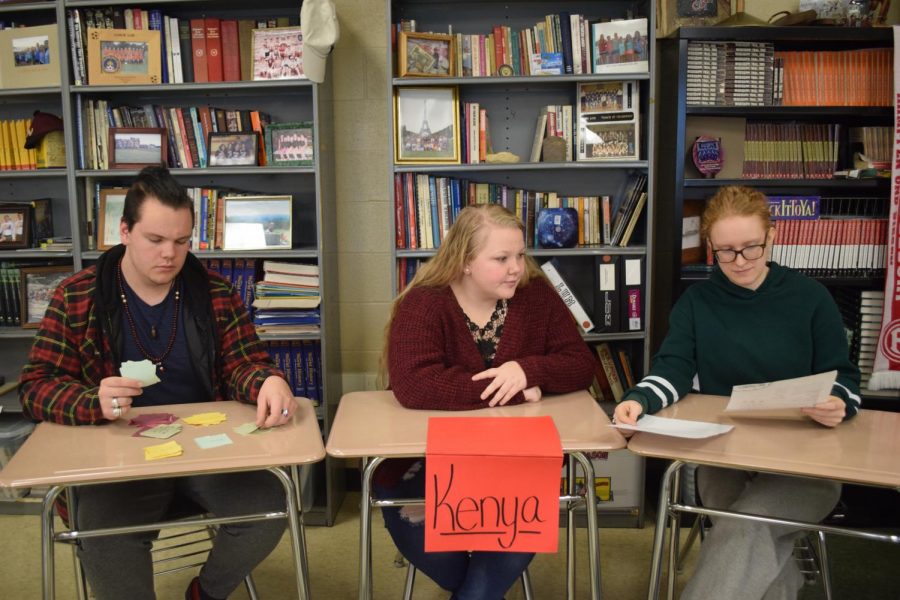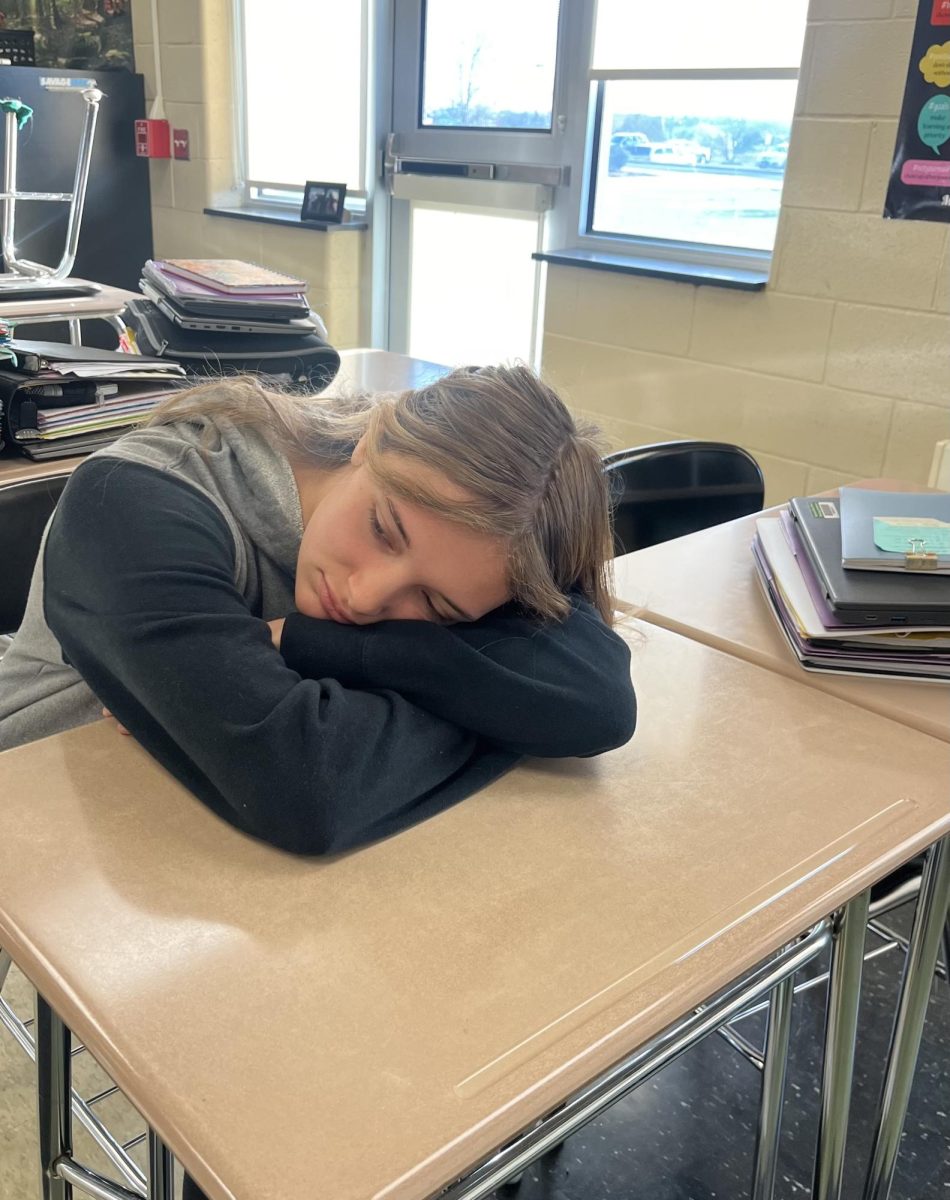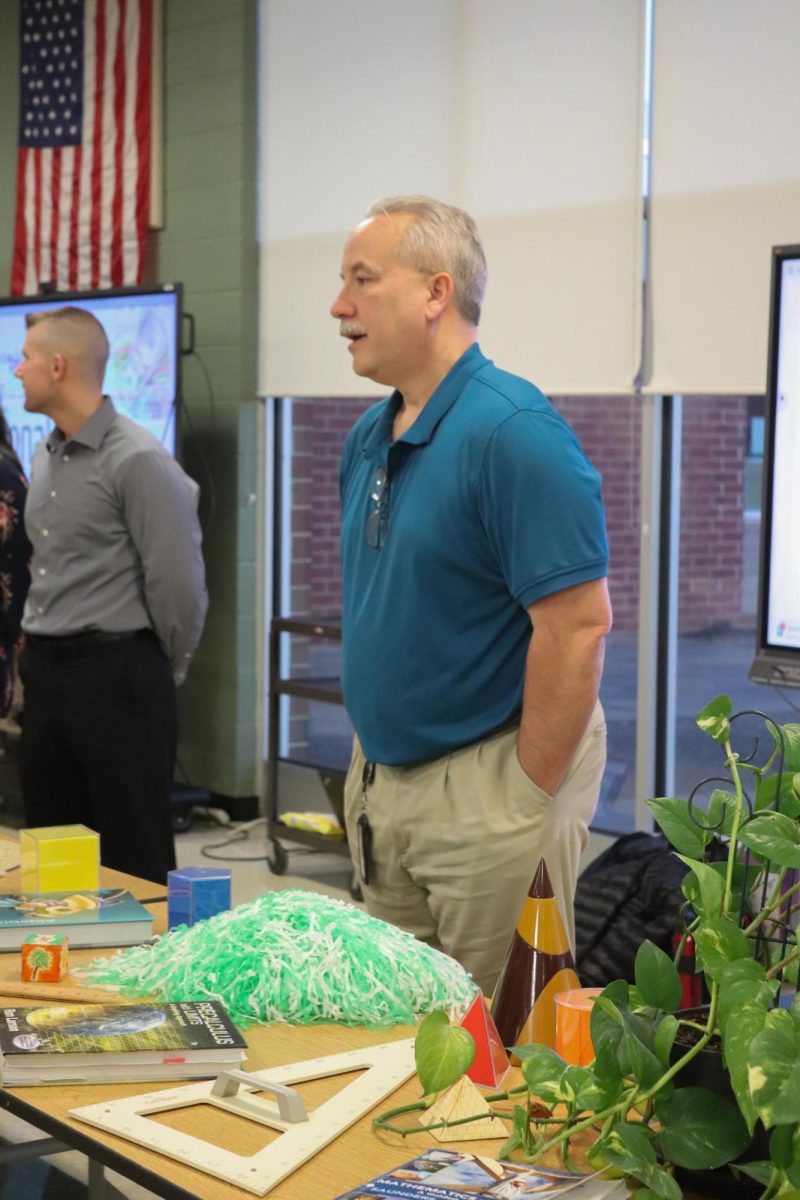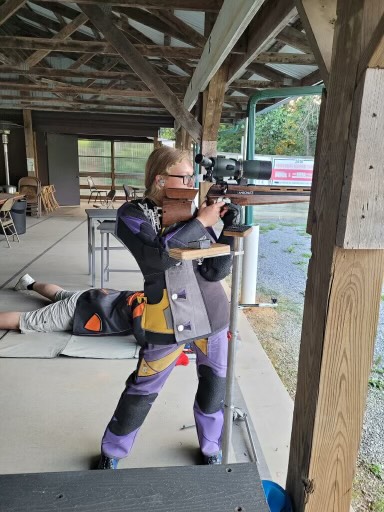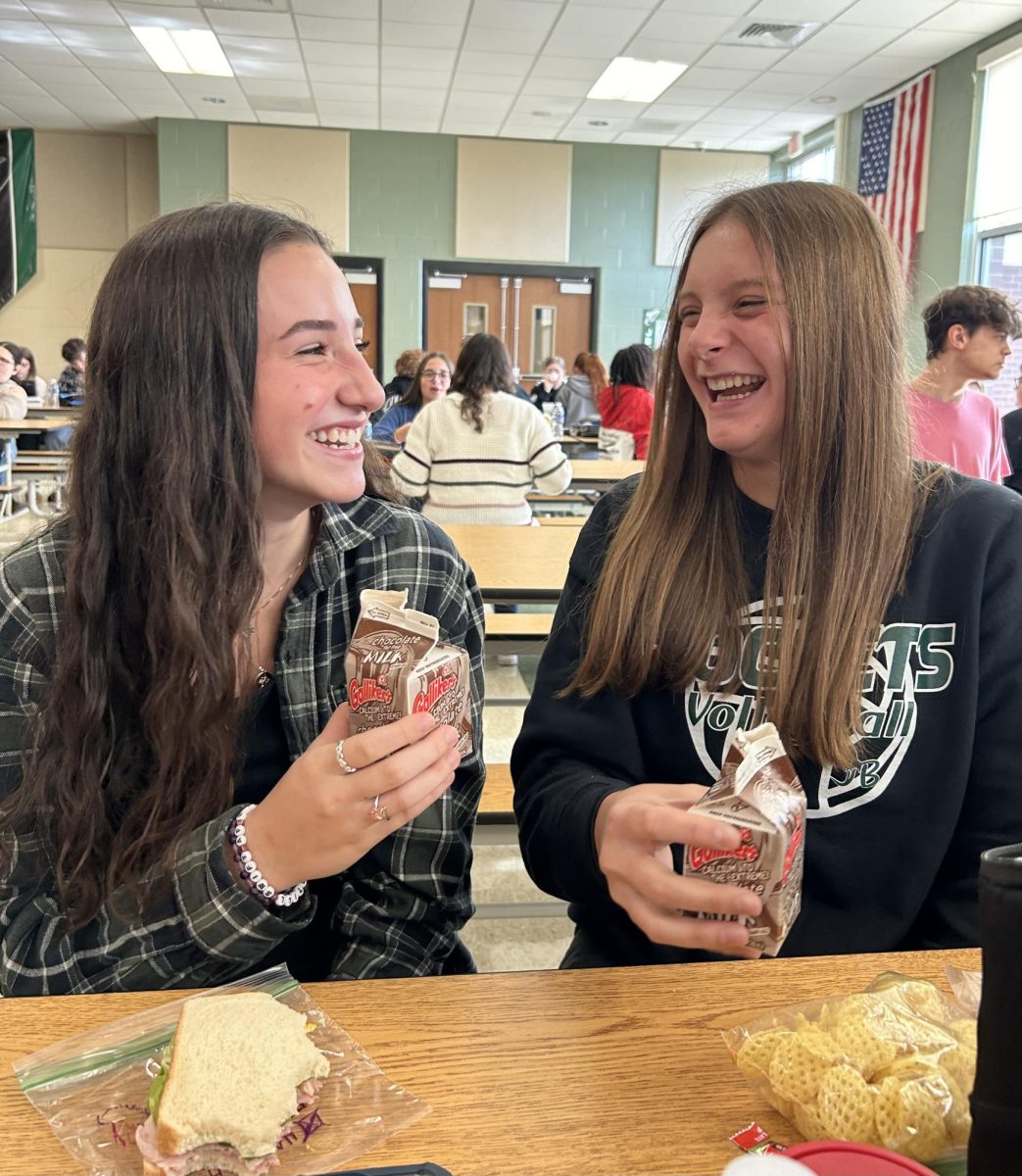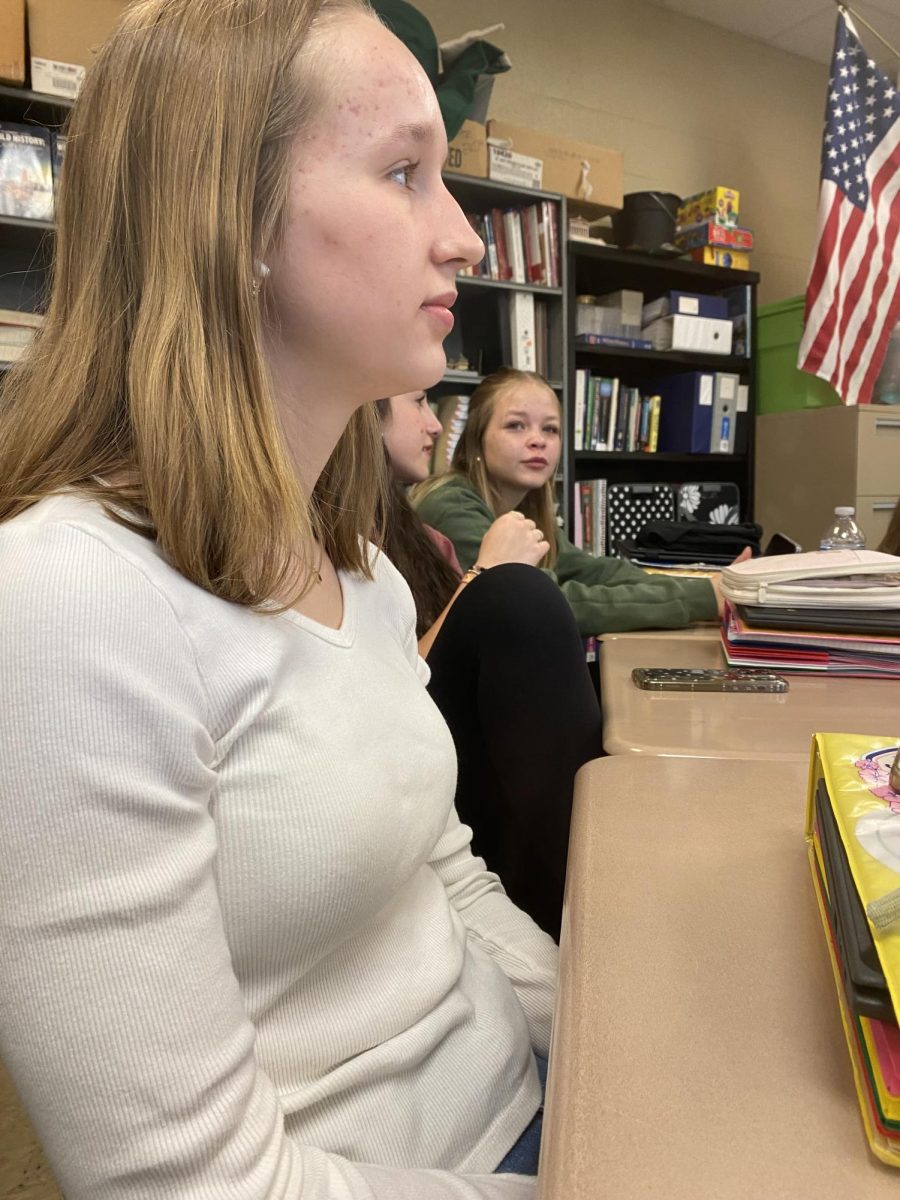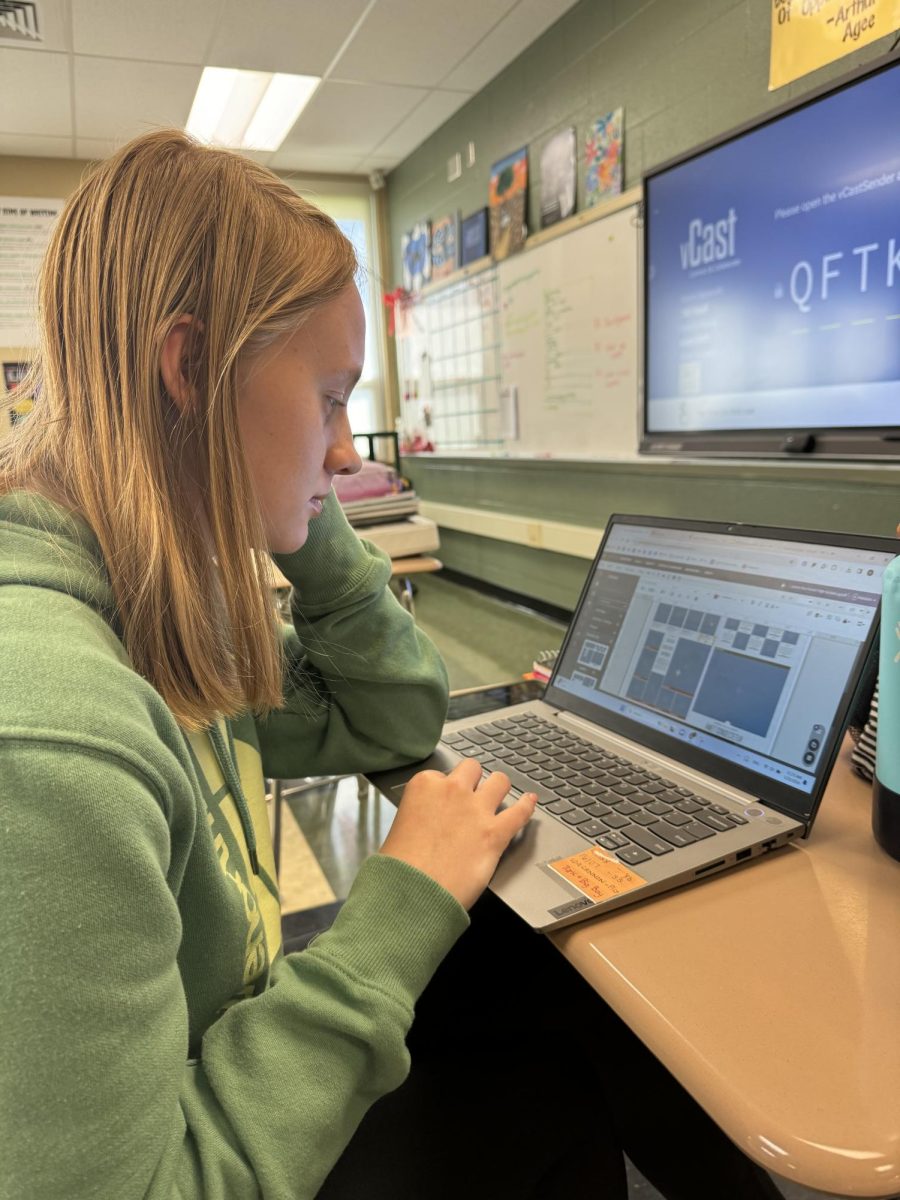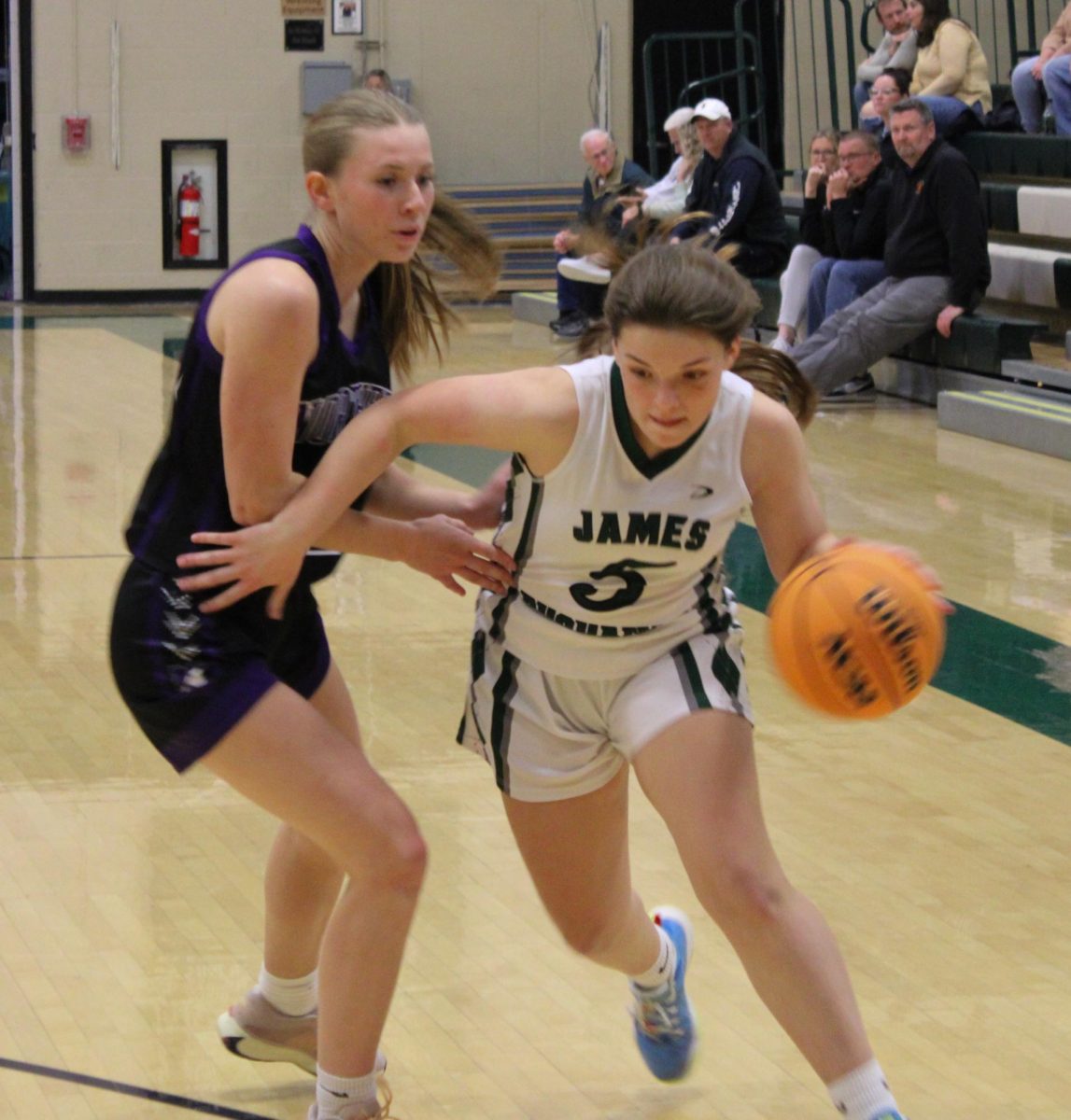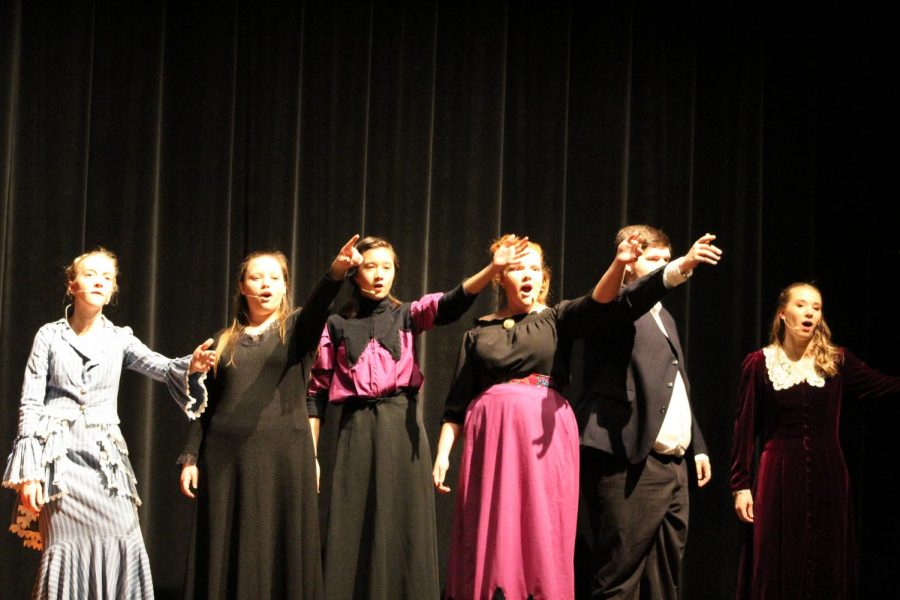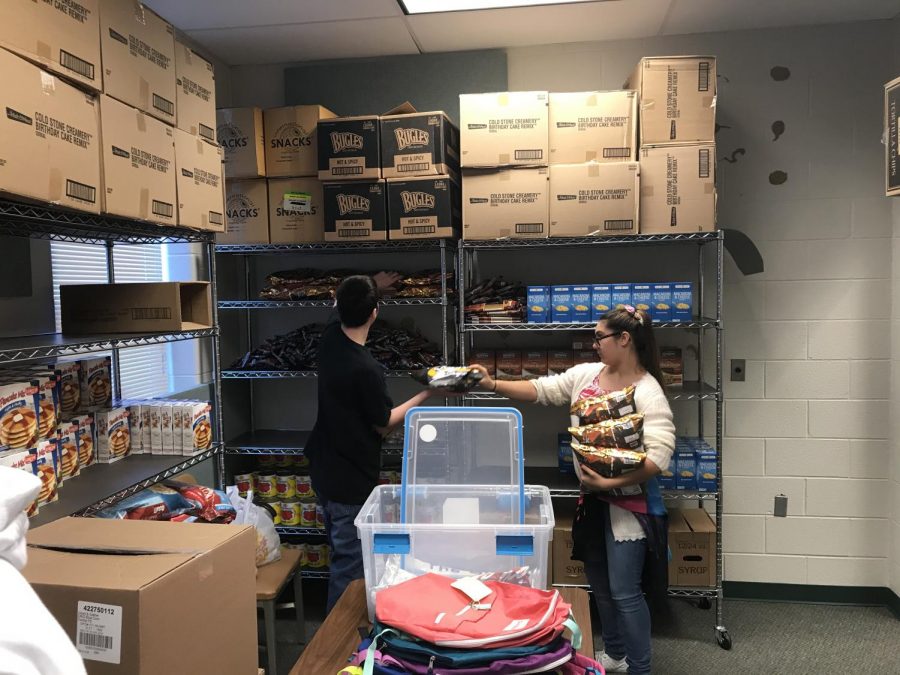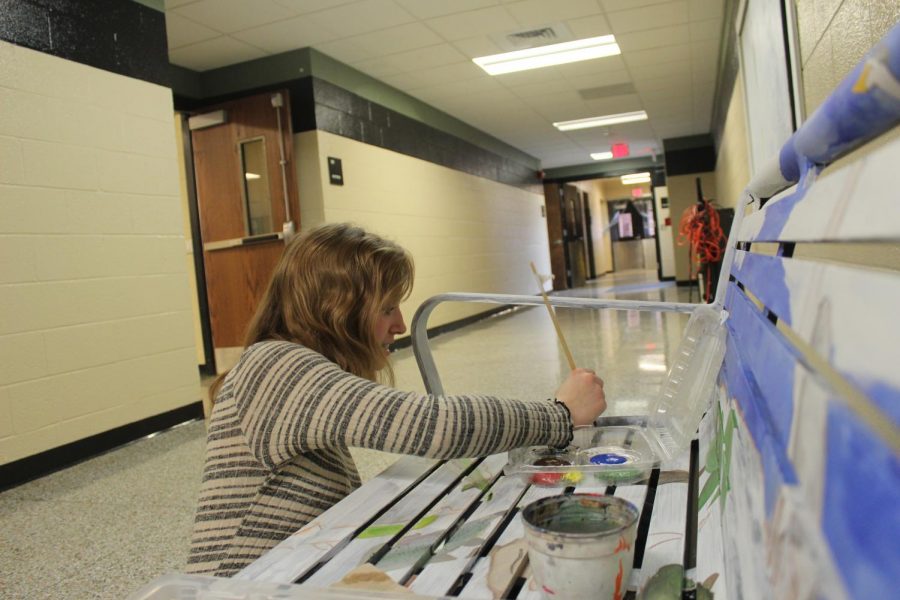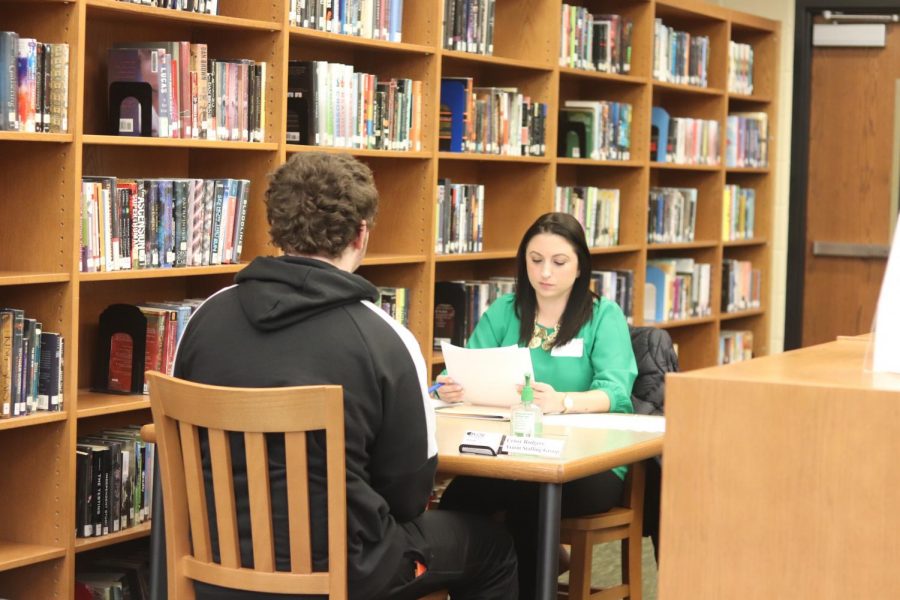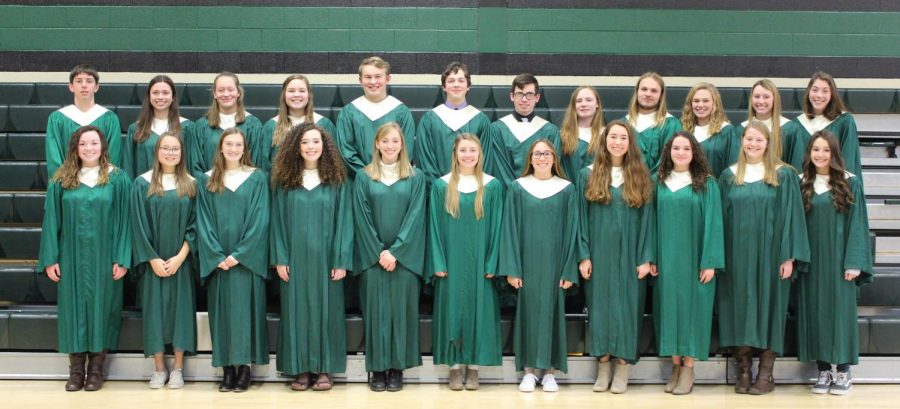The simulation that continues to thrill James Buchanan Economics students was created 42 years ago while Mr. John Lum (Faculty) was a student teacher. World Trade Simulation has evolved over the year to what it is today, teaching students how a third-world country develops.
“I was trying to do something innovative and different,” Lum said. “I wanted to do something unusual so I put together this game.”
He found a lot of success in playing the game with his students. He has continued to play it for the past four decades and will continue in the future.
“It’s original, in fact some of the currency we use, the dollar bills are the same ones from 42 years ago,” Lum said.
The aspect of the game continues, but he has had to evolve the game to match the times.
“Every year I had students write a paper and one of the questions was, ‘How would you improve the game?’’ Lum said. “Some of the improvements came from that, some came from things I was noticing after playing the game.”
He has began facing a new obstacle with the game, one he has not faced before.
“Students now are so much more game-savvy because of playing online,” Lum said. “It’s harder to keep their attention with it.”
Lum has always tried to make his game better and better each year, always making improvements. The business opportunities a country can receive were not always present in the game. More recently, Lum added war to the game, as well, to add more elements.
The game, however, can be very complex and even random. He explained it may be difficult to implement it online due to this.
“It is exciting. While you’re trying to prepare for what is to come, you also are trying to grow,” Lum said.
The game is played by students that are split up into teams, with three or four people to a team. Lum tells his students to choose any African country they would like. The country they choose will be the country they represent in the simulation. The “countries” will buy certain developments that may be found in real life. Countries can buy education, travel resources, fishing resources, and public buildings that would normally be useful. The more of these resources the country has, the more developed it becomes. When a country buys these resources, they also get money during a pay round. Every three rounds, each country receives money to continue growing. The money comes from resources they have purchased throughout the game. The game does not just consist of buying resources, though; there are also many business opportunities and hurdles that Lum throws at each country.
Some of the business opportunities included can be beneficial, like the Toyota Car Factory. A dice is rolled to choose a team at random, and whichever team is chosen Lum gives a certain amount of money to allow a car factory to be built. The factory is able to give the country money throughout the rest of the game, as well.
However, there are also bad business opportunities. Lum rolls the dice again he gives the chosen team $200,000 to store toxic waste. This opportunity results in a toxic waste spill a couple rounds later and costs the country more money than they received.
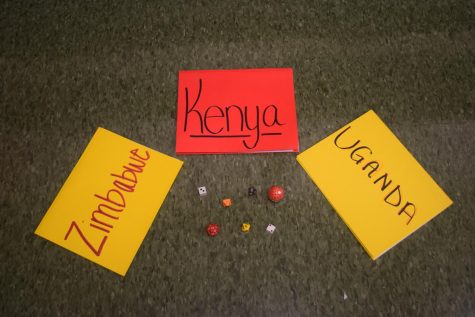
Lum also allows countries to buy natural disaster insurance. In case a natural disaster were to happen to your country, which is decided by what team is rolled on the dice, the insurance saves you from having to pay for damage. Some natural disasters that happen are forest fires, floods, and droughts.
Countries also can create treaties with one another, because there is also a possibility of war. Countries can buy weapons to accumulate battle strengths. Battle strengths are used if a country does go to war. Whatever side has the most battle strengths has a bigger possibility of winning.
He also gives incentive when playing the game.
“The object of the game is to have the highest market value,” Lum said. “The stock money they produce, plus whatever cash they have, plus three times their last pay round.”
There is not just one way to win the game, nor is there a set way to win.
“No two classes end up the same. Because of the different variances of the game, each winner can win a different way,” Lum said. “People have used war to win, people have used their stock to win, others have used their investments.”
While the main lesson was to show developments of these poor countries, he found the game taught more valuable lessons students could use in the future.
“It teaches negotiating skills, working as a team with new people, budgeting skills, thinking into the future, and looking at value on what to invest in,” Lum said.
He has bigger plans for the simulation, as well: he would like to put it online for others to play and enjoy.
“I have been talking to a former student here who is into graphic and game design, and we would like to put it online,” Lum said.
He has found success in his game, and enjoys teaching it. Students will remember it years to come and the lessons they have learned, whether it was how exciting the game was or skills they use in the future.



